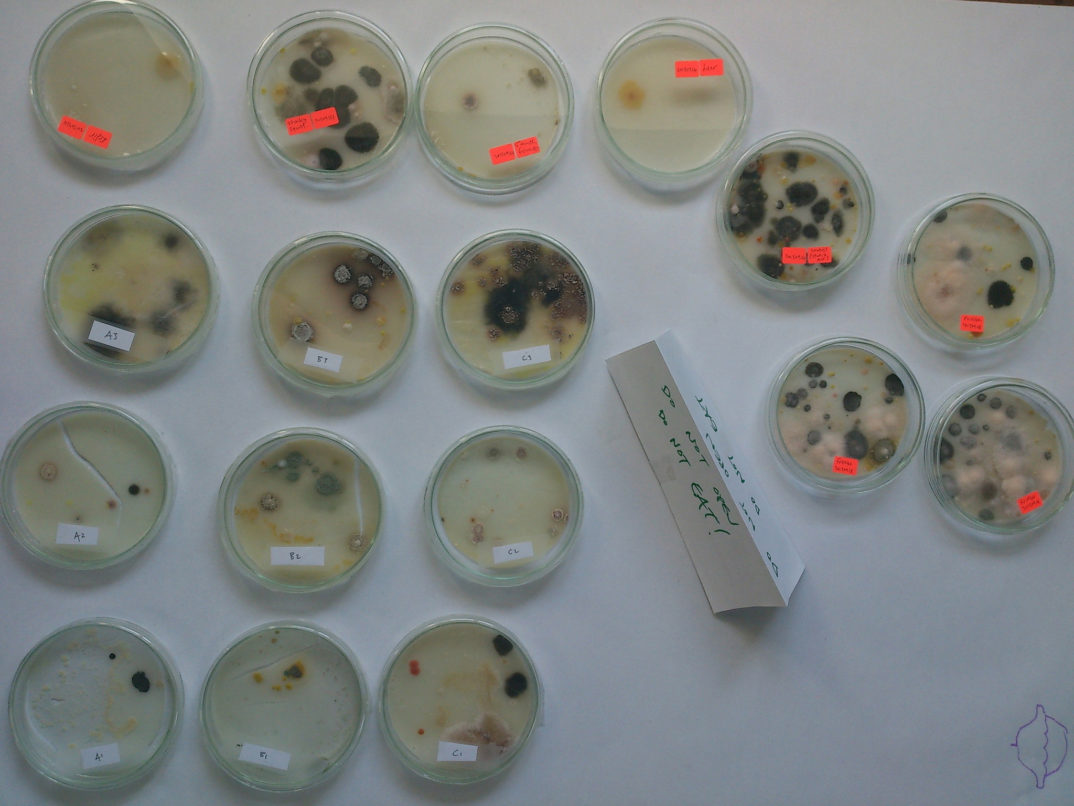In this series of posts, I want to talk about a particular challenge with the vice of vainglory. This is a challenge I’ve been struggling with for years, and unfortunately it is not one that I have a good solution to. The challenge, in a nutshell, is that vainglory comes in layers.
However, it would be difficult to jump straight into that discussion, since vainglory is not a vice that people talk about a lot these days. So, I’m going to develop this discussion over the course of three posts.
- In the previous post, I explained what vainglory is and how it differs from the vice of vanity.
- In this second post, I explain why vainglory is such a big deal and worth combating in our own lives.
- Finally, in the third post, I will talk about why the layered nature of vainglory has made it so difficult to combat in my own life.
Why It’s a Big Deal
There are two parts to showing why vainglory is a big deal. First, we need to show that vainglory is destructive. Second, we need to show that it is common. Ants are no big deal because though they are common, they are not destructive. And blackholes are no big deal, because while they are destructive, they are not common. But vainglory is both.
A Destructive Vice
There are lots of reasons that vainglory is a destructive vice. The first, and probably simplest reason, is that vainglory often tempts us away from the pursuit of primary goods. Often the best action we can perform is not the action that will lead to the biggest boost to our reputation. I like how Steven Pinker puts the point when talking about effective altruism:
“[W]e have a large set of motives for why we’re altruistic and some of them are ulterior — such as appearing beneficent and generous, or earning friends and cooperation partners. Some of them may result in conspicuous sacrifices that indicate that we are generous and trustworthy people to our peers but don’t necessarily do anyone any good.”
Plato made this point long ago. Good things are often accompanied by the appearance of the good. And over time, we can come to care more and more about the appearance and less and less about the reality. We move from wanting to help the poor to wanting to look like we are helping the poor.
Of course, this is true only to the extent that I care about my reputation for its own sake, and not merely as a means to helping the poor. If I really do care about being thought generous merely so that others will be generous as well, then no such conflict can arise. This is why Aquinas thinks that the dangers of vainglory occur when one desires a reputation for the wrong reasons.
Not only can vainglory tempt us away from the good, it can also be a powerful temptation towards evil. The classic philosophical example here is from Augustine’s Confessions. In Book II, he describes a point in his adolescence where he vandalized another’s pear tree, not to eat the fruit, nor to sell it, but simply to act maliciously. Augustine considers this such a terrible act, not because the damage was that great, but because it was done for malice’s sake. What could drive him to such an action? According to Augustine it was vainglory, a desire to be approved of by one’s friends: “As soon as the words are spoken ‘Let us go and do it’, one is ashamed not to be shameless.”
C.S. Lewis, that great popularizer of Augustine, says something similar. He argues that, of all desires, the desire to be approved of by those ‘in the inner ring’ is the “most skillful in making a man who is not yet a very bad man do very bad things.” (If you don’t believe this, just consider the results of the Milgram experiment where a majority of participants were willing to perform an action which they thought was delivering possibly fatal electric shocks just because they were told to by an authority figure.) Like Augustine, Lewis emphasizes that the temptation is not about what one will gain from being approved of. Instead, the temptation comes from the simple sweetness of being thought well of by one whose approval you desperately desire.
“And the prophecy I make is this. To nine out of ten of you the choice which could lead to scoundrelism will come, when it does come, in no very dramatic colours. Obviously bad men, obviously threatening or bribing, will almost certainly not appear. Over a drink, or a cup of coffee, disguised as triviality and sandwiched between two jokes, from the lips of a man, or woman, whom you have recently been getting to know rather better and whom you hope to know better still—just at the moment when you are most anxious not to appear crude, or naïf or a prig—the hint will come. It will be the hint of something which the public, the ignorant, romantic public, would never understand: something which even the outsiders in your own profession are apt to make a fuss about: but something, says your new friend, which ‘we’—and at the word “we” you try not to blush for mere pleasure—something ‘we always do.’
And you will be drawn in, if you are drawn in, not by desire for gain or ease, but simply because at that moment, when the cup was so near your lips, you cannot bear to be thrust back again into the cold outer world. It would be so terrible to see the other man’s face—that genial, confidential, delightfully sophisticated face—turn suddenly cold and contemptuous, to know that you had been tried for the Inner Ring and rejected. And then, if you are drawn in, next week it will be something a little further from the rules, and next year something further still, but all in the jolliest, friendliest spirit. It may end in a crash, a scandal, and penal servitude; it may end in millions, a peerage and giving the prizes at your old school. But you will be a scoundrel.”
Of course, this temptation can only occur to the extent that you desire approval, not for what is good, but simply as such. If I merely want to be approved for my honesty, then a desire for approval will not usually tempt me to join in a deception. This is one reason, then, why Aquinas thinks that the vice of vainglory involves a desire for mere approval, rather than approval for what is really good.
A second danger in vainglory is that the vainglorious lose control over their own happiness. You have much more control over how good you are than you do over what other people think of you. You can control what you do, but not what people think. Thus, the more your happiness depends on the approval of others, the fickler your happiness will be.
This point is made best, I think, by Dumbledore. In the fourth Harry Potter book, Hagrid is distressed that many dislike him simply because he is half-giant. To this worry Dumbledore replies: “Really, Hagrid, if you are holding out for universal popularity, I’m afraid you will be in this cabin for a very long time.” Ultimately, there is nothing Hagrid can do about the prejudice and poor judgment of others. However, if he grows less vainglorious, he will come to realize that the mere unqualified approval of others is not ultimately that important and should not stand as a precondition to his happiness.
Of course, not all approval is equally fickle. If someone is a good judge of character, they are more likely to think well of you to the extent you are good. This is one reason, then, why we should care more about the approval of those who are wise; their approval is less fickle and so provides a more secure foundation for happiness.
A third, but by no means final, danger of vainglory is that it can lead to dishonesty. If I come to care just about my reputation, then what matters is not being good but being thought good. Thus, I will be tempted to get others to think me good by any means I can, and not merely by becoming a better person. The vainglorious person is always faced with a temptation to make themselves look better than they really are: to take more credit for a group project than they really deserve, to make one’s motives look more noble than they really were, to exaggerate just a little bit the quality of what one did.
Why do people cheat in friendly board games? It is not like you get anything when you win, and you have not even accomplished anything if you win by cheating. The answer, of course, is that we like to be thought the winner by others. In other words, vainglory is behind many of those everyday dishonesties which populate ordinary life. And just as with the other dangers, this helps us understand why certain desires for recognition are particularly vicious. If you just care about your reputation, rather than caring that people recognize what is actually good about you, you will be more strongly inclined towards dishonesty.
The Ubiquity of Vainglory
I expect that many of you already will agree that vainglory is ubiquitous. Hopefully, you already recognize that you personally are vainglorious. (Of course it’s possible that you lack this vice, however, I expect that most people who don’t believe they are vainglorious think that because they are self-deceived, and not because they have actually reached such lofty heights of virtue.) But it is still worth understanding just why we humans are so inclined to the vice of vainglory.
While there are lots of explanations we can give for the ubiquity of vainglory, let’s just consider the explanation given by evolution. Human psychology evolved to help us survive and reproduce as a social creature within human community. And the thing is, our reputation was far more important to our reproductive success in early human communities than it is now.
There are two layers, then, to this evolutionary distortion. First, evolution selects traits important for reproductive fitness rather than goodness. Second, evolution optimized for a culture where reputation mattered in very different ways.
The Reproductive Fitness Distortion. Let’s take the point about reproductive fitness first. Often the good way to be is not going to be the same thing as the way that increases your chance at successful reproduction. The person who gives all their extra resources to the poor may be a morally better person, and do more for the common good, but they will not necessarily have lots of super successful offspring.
We can make the same point with other types of goods. For instance, the good proper to belief is truth. But even if it is good to believe true things, that does not always mean that believing true things best serves your reproductive fitness. Dan Kahan makes this point in explaining why scientific literacy correlates with partisan conformity more than with truth.
“Nothing any ordinary member of the public personally believes about the existence, causes, or likely consequences of global warming will effect the risk that climate changes poses to her, or to anyone or anything she cares about. Nothing she does as a consumer, as a voter, as a contributor to political campaigns and causes, or as a participant in public conversation will be of sufficient consequence on its own to have any impact. However, if she forms the wrong position on climate change relative to the one that people with whom she has a close affinity—and on whose high regard and support she depends on in myriad ways in her daily life—she could suffer extremely unpleasant consequences, from shunning to the loss of employment. Because the cost to her of making a mistake on the science is zero and the cost of being out of synch with her peers potentially catastrophic, it is indeed individually rational for her to attend to information on climate change in a manner geared to conforming her position to that of others in her cultural group.”
Obviously, we don’t consciously try to believe whatever our social group approves of. We think that what we believe really tracks the truth. However, there is a disconnect between what we aim at in thinking and what our cognitive apparatus has evolved to secure. This point is easy to see in selfless terms; we can recognize why believing the truth or serving the poor might trade off with reproductive fitness. But this is also true of things like happiness. Someone who cares what other people think is likely to be both more reproductively fit and also less happy.
The reason we are inclined to be excessively concerned with reputation is because reputation has a bigger influence on reproductive fitness than it does on happiness or goodness. Thus, evolution has inclined us to overinvest in our reputation at the expense of other goods.
The Evolutionary Environment Distortion. Not only did evolution optimize for the wrong thing, it also optimized for the wrong environment. Most of human evolution occurred when we lived in small communities of thirty to a hundred people. But we now live in massive, globalized societies.
If you live in a small community of thirty people, then a single person not liking you is an issue, five people not liking you is a huge problem, and fifteen people not liking you is a disaster. You did not get to select amongst forty thousand undergraduates those five most like you to be friends with, you had to be friends with the only five people available. In this environment, it made a lot more sense to make sure that each and every person you came across was impressed by you. Not only that, it was also a lot easier to make sure that everyone was impressed by you, because to be the best at something you only needed to be better than a small group of people.
Nowadays, however, it is both harder to stand out, and far less important. Despite that, all our evolved impulses still think it is incredibly important to do whatever it takes to make sure that every single person we come across knows just how great we are.
Hopefully, you now have a sense both for what vainglory is, and why it is so dangerous. In the final post, I’ll talk about one reason I’ve had so much trouble combating my own vainglory.






